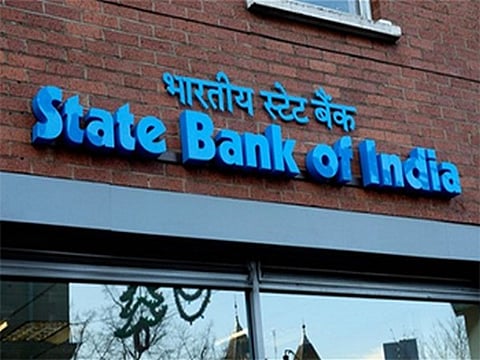

NEW DELHI: The Association for Democratic Reforms (ADR), which is the lead petitioner in the Electoral Bond case, on Thursday, knocked the doors of the Supreme Court seeking its direction for initiation of contempt of court proceedings against the State Bank of India (SBI) for failing to disclose the data as directed by the SC by March 6.
ADR in its plea filed before the Top Court said that the SBI has illegally, wilfully and deliberately disobeyed the Apex court's February 15 judgment in the Electoral Bond case.
Earlier also on March 04, the SBI had also filed a plea in the Top Court seeking its seeking a direction for extension of time till June 30, 2024, to furnish information regarding ElectoralBonds to the Election Commission of India (ECI).
As per the SC's February 15 judgment, the Apex Court in its verrict had asked SBI to furnish the information to the ECI by March 6.
According to senior Supreme Court staff and registry, the SBI matter is likely to be heard by the Top Court on March 11, Monday. It, however, has not yet been clear as to whether the ADR plea would be heard along with the SBI's plea. On the other hand, ADR is also requesting the SC to hear its contempt plea along with SBi's on March 11.
The ADR, in its plea, alleged that the SBI application is malafide and demonstrates wilful and deliberate disobedience and defiance of the judgment. "Defiant approach by SBI towards citizen's Right to know, is reprehensible and betrays its motive to stifle citizen’s voice and right to audit actions of the political class," the ADR, in its plea said before the Apex Court.
The ADR's contempt plea alleged that the data is easily available with the SBI, but it had failed to act as directed by the court. It has thereby sought the court's direction for disclosure of bond data by the SBI forthwith.
The ADR claimed in its plea question the move of the SBI that it has sought an extension of time at the 'last minute' to avoid donor detail disclosure ahead of the Lok Sabha polls, thus betraying the motive to stifle voters' right to know.
In a landmark judgement, the Supreme Court on February 15, in its verdict said that Electoral bonds scheme has to be struck down as unconstitutional, and it directed banks to stop issuing bonds.
"The Union has been unable to establish the measure adopted in clause 7(4)(1) of the electoral scheme is the least restrictive measure," a five-judge bench of the Top Court, headed by the Chief Justice of India (CJI) Dr Dhananjaya Yeshwant Chandrachud, had said in the order.
The ADR alleged that it's 'inconceivable' that around 2.6 lakh SBI employees could not even locate and share data within three weeks to the Apex Court, inspite of the fact that technology gave the choice that bonds are readily traceable through unique serial numbers.
An electoral bond is an instrument in the nature of a promissory note or bearer bond which can be purchased by any individual, company, firm or association of persons provided the person or body is a citizen of India or incorporated or established in India.
Electoral bonds were introduced through Finance Act 2017, which in turn amended three other statutes - the RBI Act, the Income Tax Act and the Representation of People Act - for enabling introduction of such bonds.
Various petitions had been filed before the top court challenging at least five amendments made to different statutes through Finance Act 2016 and 2017, on the ground that they have opened doors to unlimited, unchecked funding of political parties.
The petitions sought that the money bill route was adopted in order to bypass the Rajya Sabha, where the ruling BJP government does not have a majority.
The petitioners -- ADR and Common Cause and Jaya Thakur -- had moved the Supreme Court and challenged the Electoral Bond scheme.
They claimed that the consequence of the amendments was that annual contribution reports of political parties to be furnished to the Election Commission of India (ECI) need not mention names and addresses of those persons/ individuals by contributing by way of electoral bonds, thereby killing transparency in political funding.
The Finance Act, 2017 introduced a system of electoral bonds to be issued by any scheduled bank for the purpose of electoral funding.